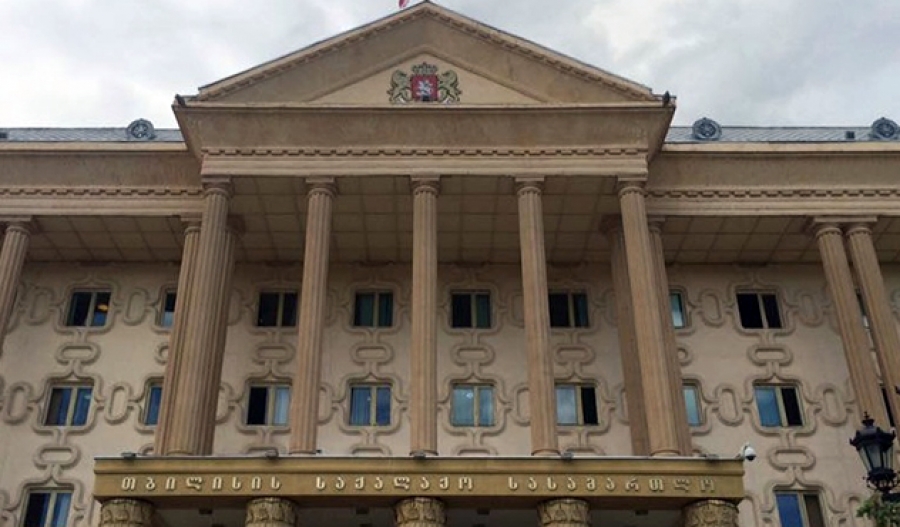Lazare Jibladze
Lawyer, Human Rights Center
Lector of the Law Faculty of the Tbilisi Ivane Javakhishvili State University Giorgi Gorashvili sued the student of the same faculty Buba Natchkebia for cursing him in the closed group of facebook.
According to Giorgi Gorashvili, based on his application the Old Tbilisi police department started investigation against Buba Natchkebia under the Article 166 of the Administrative Code of Georgia that refers to minor hooliganism.
It is alarming precedent to evaluate the action as an administrative offence, which is recognized as freedom of expression by the Constitution of Georgia and Law of Georgia on Freedom of Speech and Expression. By evaluating the abovementioned action of Buba Natchkebia as administrative law violation and starting litigation against him, the standard of freedom of expression guaranteed by the Constitution and international obligations of Georgia will be decreased.
The concrete word used by the student may not be acceptable for the society or part of the society, but the freedom of expression defends not only the information that is perceived as neutral by the other people, but also the idea and information that is viewed as insulting, exciting or shocking by the society or one part of it. It is required by the pluralism, tolerance and diverse opinions in the democratic society (see the judgment of the European Court of Human Rights Lingens v. Austria).
The Administrative Code of Georgia, which was adopted in 1984, clarifies the minor hooliganism as follows: Disorderly conduct – swearing in public places, harassment of citizens or similar actions that disrupt public order and peace of citizens.” In accordance to the same law, the action is punished with a fine of GEL from 500 to 1000 or, if the application of the measure seems insufficient after taking into account the circumstances of the case and the person of the offender, an administrative detention of up to 15 days may be imposed.
When drafting this particular article of the law, the law-makers associated its realization with cursing in “public places.” Consequently, the same action performed in non-public places cannot be qualified as minor hooliganism. Moreover, the same action in the social network facebook, and moreover, in the closed group cannot be qualified as a hooliganism because members of the society do not have access to the closed group without preliminary notification.
At the same time, it is illogical to assume that the presidium of the Supreme Council of the Soviet Socialist Republic of Georgia considered the “virtual social networks” as public places while drafting the administrative code in 1984. Consequently, the law-maker wished to protect citizens from such insults in public places that may create threat to public order and peace. Public places generally are: streets, parks, squares and more, but it can never be facebook and even more closed group in the facebook. Furthermore, the facebook user and particularly the lector of law is well aware of the conditions to use the social network when he/she accepts the Statement of Rights and Responsibilities before joining the facebook.
Also, it is noteworthy that Facebook has declared its support to freedom of speech and expression. Generally, cursing does not come in conflict with the standards of facebook and community. If it refers to adults, the facebook users are not restricted to use insulting words including cursing if it does not go beyond the limits of bullying and hate speech. At the same time, it is very important to correctly evaluate the context. In accordance to the Article 9 sub-paragraph “b” of the Law of Georgia on Freedom of Speech and Expression, the state has authority to regulate obscenity but in accordance to the Article 1 subparagraph “f” of the same law, obscenity is a statement, which does not have any political, cultural, educational or scientific value and which rudely violates the universally recognised ethical norms. Having that, the student expressed his opinion in closed group without violent calls and did not aim to attract negative public attention towards the abovementioned person; consequently it cannot be subject of legal punishment.
At the same time, cursing in the closed group of facebook does not fall under the internal regulations of the facebook not say anything about the standards estimated by the administrative code of Georgia. The dispute over moral cannot become topic of consideration by the law enforcement bodies. Establishing content restrictions on freedom of expression and evaluation of moral categories by the state contradicts the idea of plural and free public space and creates the risks of establishing ideological or ethic discourse through using the repressive state bodies. Similar approaches may have chilling effect with regard to individuals or groups enjoying their right to freedom of expression in future.
Similar interpretation of this norm by the investigation and its extension over the virtual communication space, as well as elaboration of administrative offence act based on it – is rude violation of the law and it may create dangerous precedent of infringing freedom of speech and expression, raise questions about the trust of the state towards democratic values.
It is essential that all three branches of the government and each of their representatives shall implement their duties in accordance to the Constitution and not only respect the rights and freedoms guaranteed by the Constitution but do their utmost within their competences to promote practical realization of those rights.
Also, the Ministry of Internal Affairs shall intensify monitoring of incompetent activities of concrete investigators and take measures to build their competence in this direction.
And finally, we hope, the Tbilisi City Court will pass legal and fair judgment over the case Gorashvili vs Natchkebia.
News
December 13, 2023
Ethnic minorities outside the peace dialogue
November 6, 2023
‘Peace’ agenda of political parties
Popular
Articles
February 13, 2024




